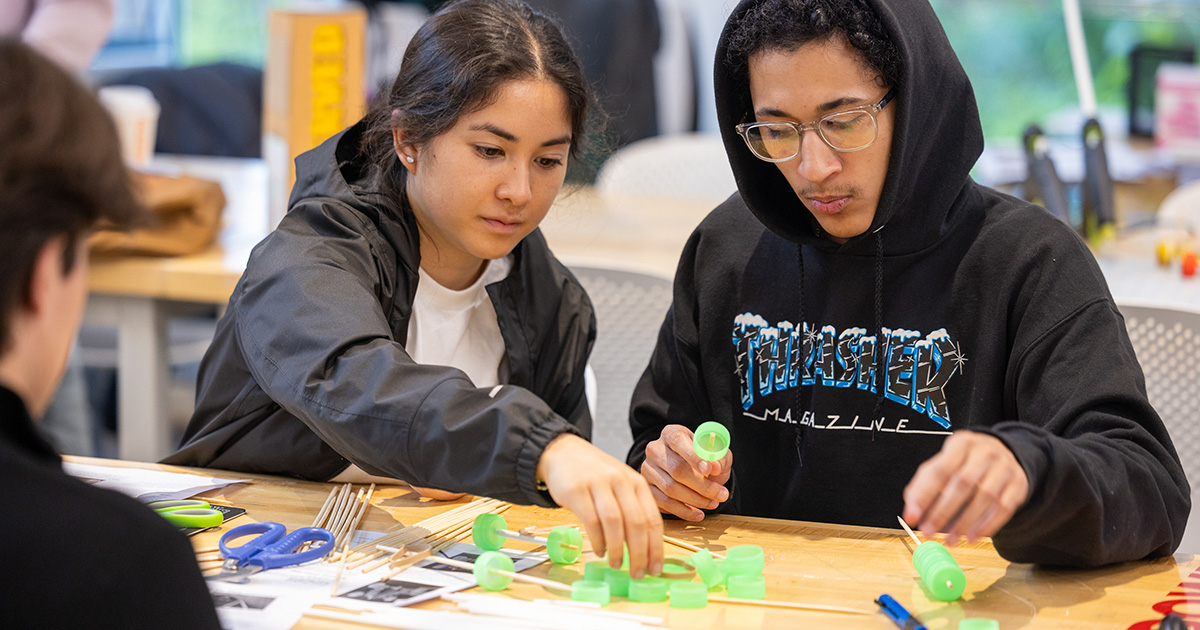Why Family Entrepreneurship is the New Family Business

Family businesses are everywhere. And they’re often misunderstood.
Many think of family businesses as old-fashioned companies, passed down from one generation to the next, sometimes across three or more generations. Findings from the first ever Family Entrepreneurship Report by the Global Entrepreneurship Monitor (GEM) debunk that assumption.
The reality: 75% of entrepreneurs in 48 economies around the world said that their family was involved in starting their businesses, either as co-managers or co-owners. The vast majority of startups around the world are, in fact, family businesses.
Family businesses come in all shapes and sizes. They may be legacy businesses or new businesses started by siblings, spouses, and cousins—not just parents and children. The traditional focus of family business is on the business, when the real focus should be on the family.
Entrepreneurial families create economic value and social impact using their businesses, and other ventures, as the vehicle. The business is one of many possible manifestations of their entrepreneurial spirit. To truly understand these families and their potential to drive positive change, we need to look at the topic from a different perspective: family entrepreneurship.
Family Entrepreneurs in Action
The Babson College community is a perfect example of family businesses of all kinds in action, including first generation family entrepreneurs.
Like Emily and Joe Consilvio. Having grown up in a multi-generational family business—he worked there from a young age—Joe sought to pivot the company to meet the changing needs of the industry. His family, however, desired to maintain the current model, taking what they saw as less risk.
“Entrepreneurial behavior is driven by families, not just family businesses.”
William B. Gartner, Professor of Family Entrepreneurship
Understanding the need for change, he teamed up with his wife, Emily, to start their own company. They launched The Putney Group, a corporate gifting and promotional merchandise firm, in 2010.
“Working in Joe’s family business helped form and mold us going forward. We learned what we did and did not want to do in our business and in our working relationship,” said Emily. The Putney Group has been a significant success both operationally and as a means for the couple to raise their four children in line with their values, she said.
Redefining Family Business
Family entrepreneurship, in the simplest of terms, is how families like the Consilvios act entrepreneurially together to create growth and positive impact. If we are only looking at a particular family business, and not the entrepreneurial activities of the family as a whole, we are measuring their achievements with the wrong metrics.
“Entrepreneurial behavior is driven by families, not just family businesses,” says William B. Gartner, the Bertarelli Foundation Distinguished Professor of Family Entrepreneurship at Babson College. “The existing business is only one of the things the family does. What we really want to understand is the specific family dynamics that foster entrepreneurial outcomes.”
Debunking Family Business Myths
A widely cited data point states that only 30% of family businesses survive to the second generation—often misunderstood to mean family businesses have a survival problem. In reality, family businesses survive somewhat longer than the average firm.
This data point also assumes entrepreneurship within the family ceases as the legacy business is sold or comes to an end. But when the legacy business no longer exists, the resources in the family, financial and otherwise, remain. If the next generation in the family can unlock their potential and pursue a new entrepreneurial endeavor, the family’s entrepreneurship legacy will continue.
Take siblings Jack ’16 and Max ’17 Barber. Their grandfather, Gus, opened a butcher shop in the ’50s. The family eventually transformed the company to become a national leader in the food industry; in 2011, they made a strategic decision to sell the business.
But the entrepreneurial journey of the Barber family continued. Jack started Mainely Burgers, a fledgling food truck business, in 2012 while a first-year at Babson. Max joined the business the next year; now the brothers are running the business side by side, with support from their parents. Mainely Burgers operates three food trucks, two restaurants, and a fully catered bar on wheels.
Supporting Family Entrepreneurs
Babson College has a long history of supporting family entrepreneurs of all kinds. That support is centered in the College’s Institute for Family Entrepreneurship, part of The Arthur M. Blank School for Entrepreneurial Leadership.
At the IFE, we believe strongly that entrepreneurship rests within the family, not one particular business. Programs are designed to help families tap into the innovation and resources of the family, with a focus on unlocking the potential of the next generation to build and create value that is aligned with their family vision. This unique approach helps families develop a set of capacities and skills that enable them to work effectively and entrepreneurially together, while building stronger family ties.



